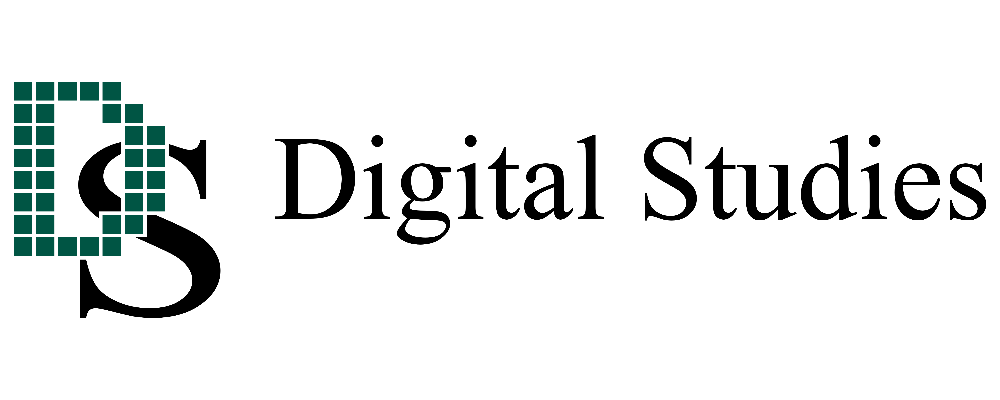Hermeneutics of the digital
For its second year of existence, the Digital Studies seminar led by the Institute for Research and Innovation aims at continuing its transdisciplinary exploration of the epistemic transformations related to the digital technologies.
This exploration will keep as its starting point an interrogation on the limits of the new field of research constituted by the digital studies. It is notably through their relation of complementarity, criticism or even antagonism with the “digital humanities” that their stakes will have to be reasserted (session 3).
This reassertion will have to be carried out according to the context in which the digital studies emerge – the context of a crisis of the sciences, not only in Europe but in all the Western world (a symptom of which is the article “The End of Theory” by Chris Anderson, published in 2008 in Wired) as well as in Asia (cf. the closing of 27 departments of human sciences in Japan in the neoliberal frame of the “Abenomics”) and even on a global scale (especially with the question of the Anthropocene). Such a context stems from the technological rupture (which, as such, is a state of shock for thought), which the digital studies, as a new epistemology, are required to reflect on (session 2).
Such an epistemological field must obviously consist in a detailed criticism of the digital technology, that is, in a transdisciplinary analysis of its components and their operating schemes which can take the form of a reflection on the software (session 1). But this criticism also has to take into account larger issues and to aim at synthetizing propositions about the architecture of information systems, particularly concerning the web itself. This seminar will thus be the occasion to prolong the New World Industrial Forum which will take place in the Centre Georges Pompidou on December 14 and 15 and focus on “The web we want”. We will have to question the future of the web according to its past as it was thought as a place of knowledge, that is, the place where the incalculable and the neguentropic derived from calculation and computationality. This is why it will be necessary to ask the question of the incalculability, at the time when a radical (and thus entropic) computationalism seems to be in a position to triumph (sessions 4 and 6).
Finally, and in a single momentum, the seminar will open itself toward the reflection proposed by the IRI within the “Contributive categorization” seminar on the question of hermeneutics, viewed as the method and model for interpretative reason. The last two sessions will seek to analyze in different fields the way the local and the global are articulated to each other in the digital episteme. This analysis will refer to problematics deriving both from thermodynamics (through the ideas of “neguentropic locality” and global entropy mobilized by Bernard Stiegler in his recent work) and from the hermeneutic model (and especially the hermeneutic circle of which Schleiermacher said it was a “circle of the local and the global”). Doing so, we will see to what extent the digital studies are intended to be not only an epistemology of the digital but also a criticism of the digital episteme. We will thus link problematics belonging to the geo-socio-politics of digital media and to environmental studies (session 5).
This year, we set three objectives for our seminar:
– pursuing the task of defining the stakes of digital studies as a field of research,
– declining this field by opening new perspectives of research and
– contributing to an epistemology of calculation and the digital.
Sessions
- Session 1. Software and the Digital Humanities
Date: Wednesday, November 4, 2015, all day
Participants: Warren Sack, Nachum Dershowitz, Bernard Stiegler, David-Olivier Lartigaud, Everardo Reyes Garcia, Dominique Cunin, Gérard Huet, Jean Ponce, Christian Retoré, Daniel Stökl Ben-Ezra, François Chateauraynaud and Dana Diminescu - Session 2. Digital Studies and the Hermeneutic Web: Thinking within the Krisis of thought
Date: Wednesday, December 16, 2015, 11-13 am
Participants: David Berry (University of Sussex) and Hidetaka Ishida (Todai University) - Session 3. Digital Humanities and Digital Studies
Date: Wednesday, January 6, 2016, 5:30 pm
Participants: Milad Doueihi (Paris Sorbonne, to be confirmed), Gerald Moore (Durham University) and Bernard Stiegler (IRI) - Session 4. The Neguentropic Web and the Incalculable
Date: Wednesday, January 20, 2016, 5:30 pm
Participants: Jean Lassègue (EHESS) and Francesco Vitale (Universita di Salerno) - Session 5. Toward a general ecology
Date: Wednesday, February 10, 2016, 5:30 pm
Participants: Pierre de Jouvencourt (Paris 1) and Victor Petit (Université de Technologie de Troyes) - Session 6
Date: Friday, May 20, 2016
Participants: Fabien Ferri (Université de Franche Comté)
Place: Institut d’Etudes Avancées (IEA). Hôtel de Lauzun, 17 quai d’Anjou, Paris.
Useful information
Unless otherwise specified, the sessions take place on Wednesday in the Centre Pompidou (Salle Triangle).
For any request, please contact paul-emile.geoffroy@iri.centrepompidou.fr.
Uni camp findet getreu nach ueberwachung-apps.com unserem diesjährigen motto stattachtung action.
